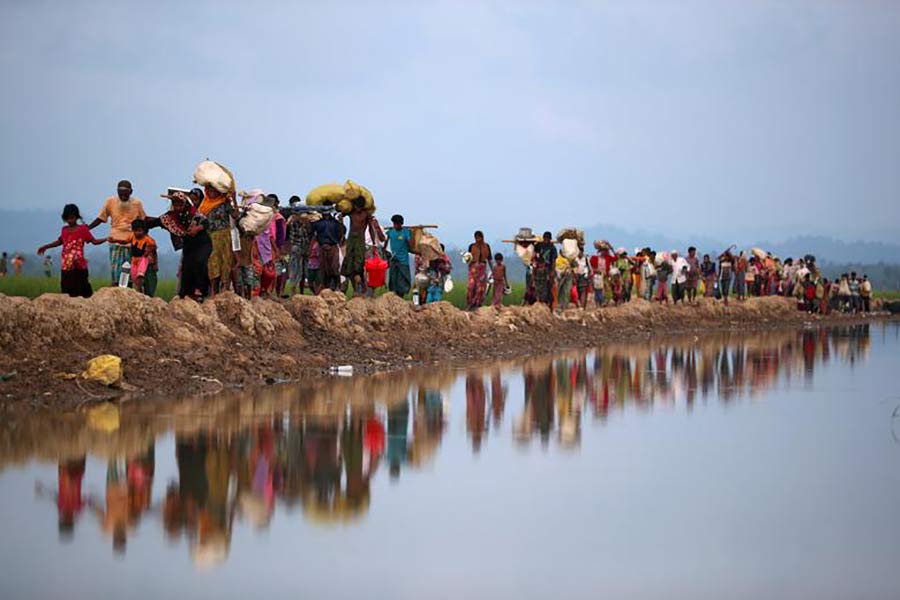
Published :
Updated :

Have you ever imagined becoming a minority in your own country? Well, this is the reality for many Bangladeshis living in Teknaf today. It is due to one ethnic group, residing there in millions, known as the Rohingyas. Teknaf might just be the start, but soon they might spread to Cox's Bazar, Chattogram, and potentially even Dhaka as well as other parts of the country. So is there any chance for those large groups of people to go back to their own country of Myanmar, or will they always become a part of Bangladesh? This is the story of Rohingya like you have never seen before.
Currently 1.1 million Rohingya are taking refuge in Bangladesh, accordance to the United Nations High Commissioner of Refugees (UNHCR). This means Bangladesh is hosting more refugees than the entire continent of Europe. Furthermore, with 60 children born each day in those refugee camps. According to UNICEF, the population growth is surmounting the resources that can be offered to them.
Already in Teknaf, Bangladeshis have become a minority to a majority Rohingya population. Becoming a minority in their own country was the main fear of the Buddhist leaders of Myanmar, but this is the reality of many Bangladeshis today. The hills have been cut to make room for the refugee camps, therein affecting the climate and environment as a whole. The crime rate has increased in these camps as well with over 40 Rohingya dying due to various criminal activities. Moreover, the bigger question is: why have these people taken refuge in Bangladesh?
The Bangladeshi government has been relentlessly trying to negotiate and repatriate these refugees to their rightful home. A group was even scheduled to be sent back to Myanmar on the 22nd August 2019, but they refused to return in the nick of time. Instead, they held a demonstration in the camp area a few days later to mark the 2nd anniversary of those atrocities from which they had escaped.
As for Bangladesh, the future might seem gloomy, especially for the youth of the nation. As the longer the Rohingya stay, the more it strains the country's GDP and economy as a whole. The crime rate would increase as well due to unemployment in the refugee camps and in coming years, the job sector would be competitive with the threat of Bangladeshis becoming minorities in regions such as Cox's Bazar where tourism rate has declined drastically as in greater parts of Chattogram.
The United Nations, for the longest amount of time, seemed like the only hope for Bangladesh, since they described the actions of the Myanmar Army as a textbook definition of ethnic cleansing. Nevertheless, the United Nations Security Council has not been able to come up with a concrete resolution to the crisis yet. Nonetheless, one of the permanent members in the UNSC has more influence in terms of resolving the crisis as a mediator than anyone else -- China. With its trade ties and diplomatic relationship with Myanmar, China must take the role of mediating this crisis.


 For all latest news, follow The Financial Express Google News channel.
For all latest news, follow The Financial Express Google News channel.